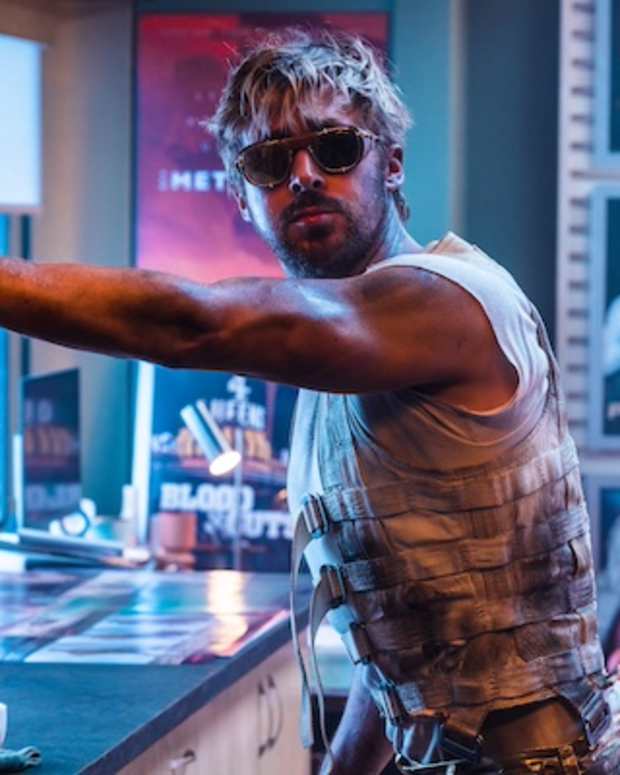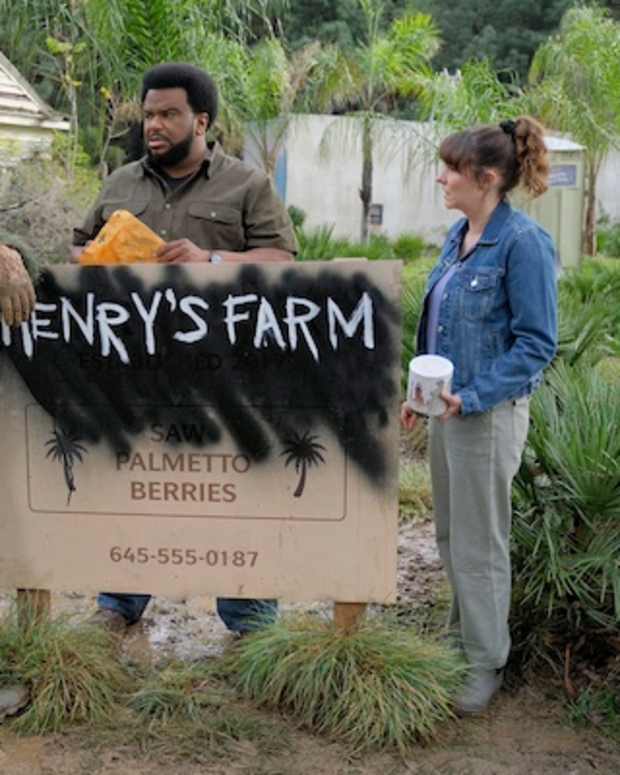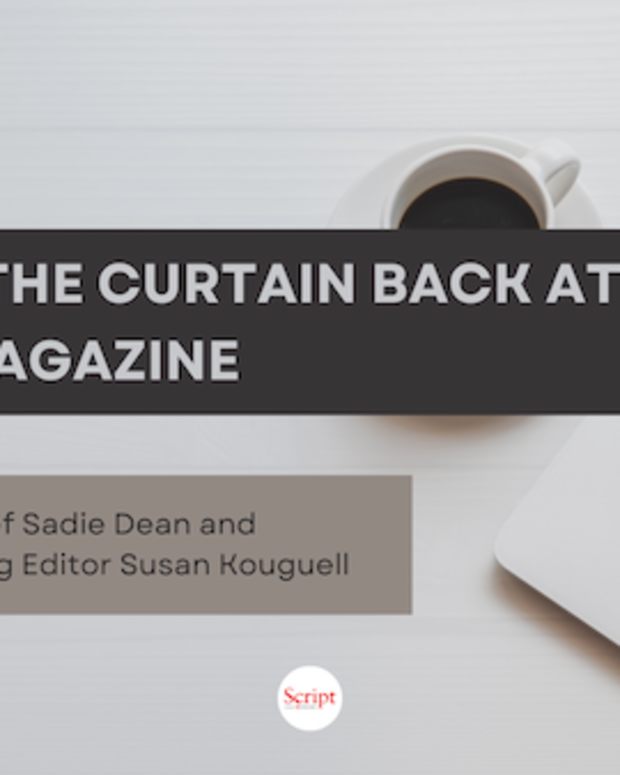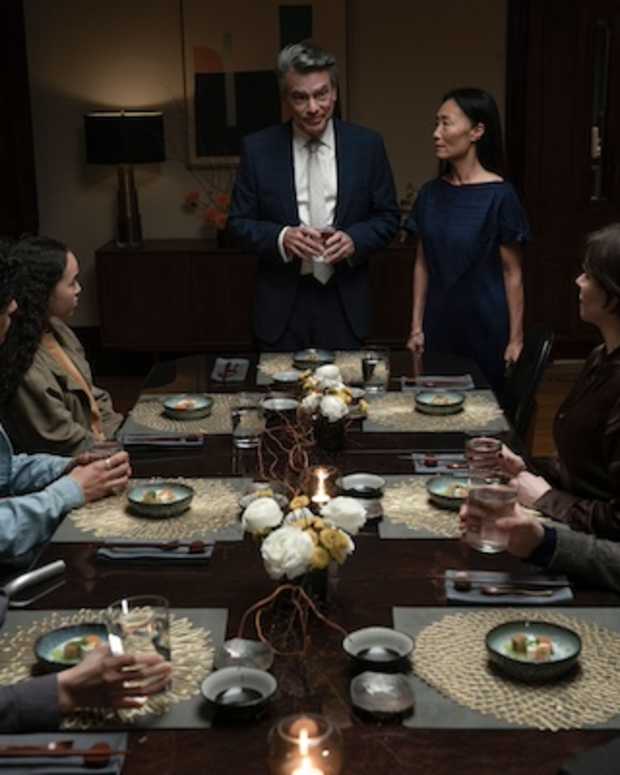Attention to Detail: An Interview with Writer-Producer Michael R. Perry
The Paranormal Activity franchise was the catalyst for the new generation of found footage scary flicks. Cranking up the spooky factor by utilizing limited locations and stillness and harnessing the power of silence, the movies are perennial favorites among horror lovers. The first movie set the stage for Katie to be possessed. The second movie, which had the difficult task of living up to the seamless storytelling of the first one, brings back Micah and Katie and introduces Katie's sister Kristi, her husband Daniel, teenage daughter Ali and newest addition to the family, Hunter. It compels the viewer with the same mercurial horror as the first. The screenwriters are Christopher Landon, Tom Pabst, and Michael R. Perry.
Writer-producer Michael R. Perry cut his teeth writing for television, with his inaugural gig an episode of Eerie, Indiana (1991-1992). He's since written for a panoply of venerable shows, including Law & Order: Special Victims Unit, NYPD Blue, American Gothic, The Dead Zone and Sweet Tooth. He’s a wildly entertaining verbal storyteller and that translates into this Emmy and Edgar Allen Poe award-winner’s written work.
How did you get involved with Paranormal Activity 2?
I love challenges. And I love found footage movies. 84 Charlie Mopic, a Vietnam movie, was the first found footage film to catch my attention. It’s about an American man who’s sent to Vietnam to sit in with a platoon. The 16 mm footage is supposed to be used for training back home. Then there’s The Blair Witch Project. I worked with David S. Goyer on Freakylinks. I’d met with Steven Schneider at House of Pies in Los Feliz. He’d read my script The Voices. They hadn’t been able to crank out a sequel for Paranormal Activity and I wanted to take a crack at pitching for it. I’d been wanting to work with Kevin Greutert, who’s a close friend and classical pianist. I pitched Jason Blum on the telephone and eventually Adam Goodman, the head of Paramount. Oren Peli didn't want to do a sequel and I wanted his blessing. When I pitched him, I went beat by beat through the story. Oren knew every horror and found footage film. He told me, "I like this." His focus was and is on quality.
One day I was driving and got a call from Jason Blum. He wanted me to come to Paramount to pitch to Brian De Palma. I promptly did a U-turn and went to Paramount for this super-secret meeting. He listened to my hour long pitch. Circumstances changed and he was no longer involved.
Once the project came together, we lost Kevin Greutert as the director. The Saw producers got him…!
What gives Paranormal Activity such staying power?
The scrutiny to detail and honest storytelling.
What are some of your favorite horror films?
Frankenstein, Dracula, Mexican Dracula, the original Wolf Man, written by Curt Siodmak. The Hammer movies in the 60s. From the 70s, Rosemary's Baby, The Exorcist, Texas Chainsaw Massacre. I went to a 40th anniversary screening of Texas Chainsaw Massacre where William Friedkin interviewed Tobe Hooper. That was pretty special. The score for that film is amazing. Jaws and The Omen are two more favorites. My favorite one in last ten years without a doubt is Let the Right One In.
[The ABCs of Horror: An Interview with Simon Barrett]
What are the challenges of screenwriting as opposed to television writing?
The good elements of both have been blending into each other. Movies used to have characters with greater depth. Now TV does. When you’re pitching a TV series, the focus is on theme, tone, and overarching structure for 90 percent of time. TV has to fill endless time. It has to be made. There’s a system for it. Film is a handmade thing. Lean into character for both.
What was a writing mistake you made that you never made again?
Trusting my self-esteem in the hands of Hollywood. You can imagine it loves you, but it never does. I used to want every single thing that I had coming out to succeed. But like Poker, sometimes you need to know when to fold. I learned the way you’re treated isn’t necessarily related to your effort.
What writers are some of your biggest influences and how does their influence manifest in your work?
I love Stephen Knight. He had a chess movie before they were chic! He was also one of the creators of Who Wants to Be a Millionaire.
You've produced quite a few projects. Do you find that affects the way you approach writing them?
You have to learn how to produce. When I was on Millenium, they let you make mistakes that you lived with in the editing bay. Chris Carter throws you in the deep end until things are sorted out. You have to use your best judgement. When you're writing, this kind of emotional effect is impossible to produce. You have to focus efforts and create scenes that can be made and have great impact. When there’s a room full of writers, creating a series, you have to buckle down or work on something else. You have to know when to bear down or let go a little bit.
[An Economy of Words: An Interview with 'Lamb' Screenwriter Sjón]
How did you get your first writing gig?
I initially wrote several books. I’d rented an office in a hallway. The landlord was Karl Schaefer, he was a producer for Eerie, Indiana. He let me pitch and I got two credits on the show. One of the episodes, “The Loser,” was directed by Joe Dante. Then I wrote a spec that sold but never got made. It started becoming a real career when I got into one-hour television. I started out working freelance for New York Undercover. Wolf Film's casting department sent the script to Ice-T and he said, "yes."
I always have to reinvent myself. New and old writers have the same problems. We always have to have samples. And they should have our identifiable “voice.” Always remember there’s a human being on the other end of that script, reading it.
How do you think writing changes the writer?
It isn't real until put on paper. Mapping out your soul in words allows you to see things about yourself. Reflect on the day's experience. You won't understand certain things until they’re put in words. Small observations about the world can change the way you write about it. It becomes less about the incident and more about the soul.
What advice would you give to aspiring writers?
Learn how to give notes gently and receive notes with dignity. Develop an aesthetic language with two or three close friends. Those conversations about the narrative art with other people are as important as anything put on paper. They provide a super structure in which to try things.
Always have a secret thing you love that isn't popular. Read scripts and novels. Get a feel for the way a story can be a surprise. Outline things you love.
What are you currently working on?
I have a new spec that's out. I’m also pitching a high-end animation TV series. I’m always working on something.
What’s your writing schedule?
I write every day, Monday through Friday. I start at 8:00 a.m. and write until lunch. I try to exercise. That’s when some of my best ideas come to me.







![[L-R] Quvenzhané Wallis as Zora and Jennifer Hudson as Maya in the Sci-Fi Thriller film, BREATHE, a Variance Films / Warner Brothers release.](https://scriptmag.com/.image/ar_8:10%2Cc_fill%2Ccs_srgb%2Cfl_progressive%2Cg_faces:center%2Cq_auto:good%2Cw_620/MjA1OTIxMzMzNzg2MTkxMTI2/breathe_still-4.jpg)


![[L-R] Jennifer Pyle, Carla Turner and Gina Dobson of BAB On 3!](https://scriptmag.com/.image/ar_8:10%2Cc_fill%2Ccs_srgb%2Cfl_progressive%2Cg_faces:center%2Cq_auto:good%2Cw_620/MjA1OTIwOTg0MjgzMjI3NjAy/bab-on-3-creators.jpg)